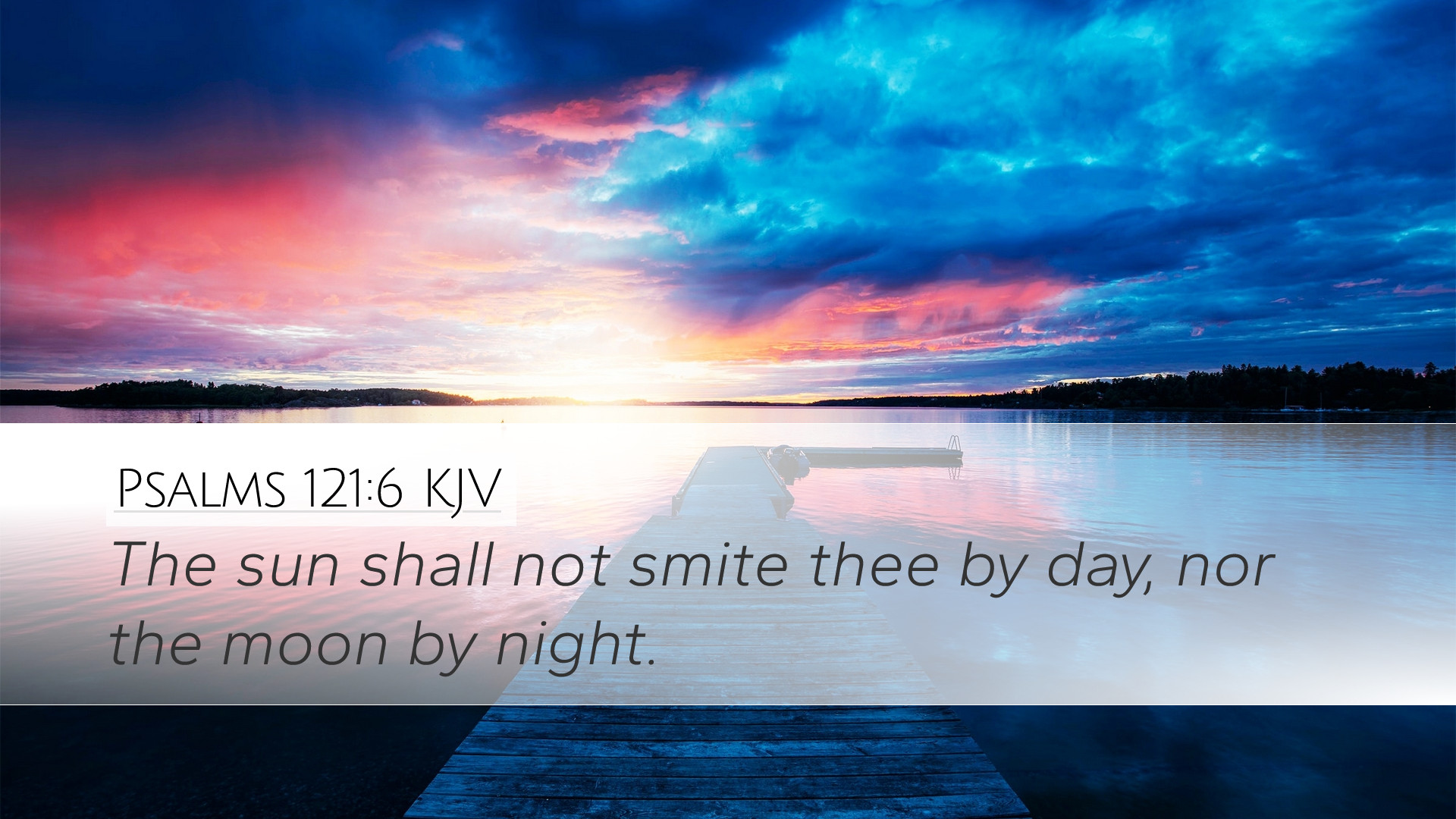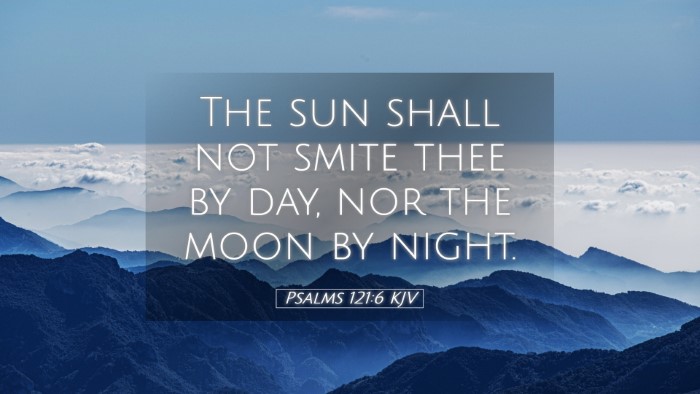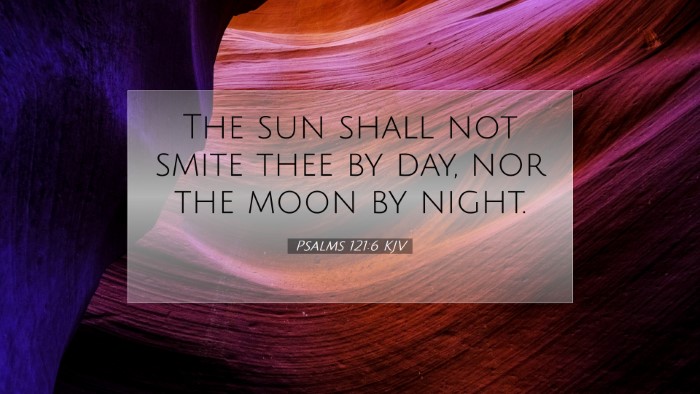Psalms 121:6 Commentary
Psalms 121:6: “The sun shall not smite thee by day, nor the moon by night.”
This verse encapsulates the overarching theme of divine protection that permeates Psalm 121. The assurance of God’s watchful care is emphasized through the imagery of daily and nightly threats. The sun, often a symbol of the relentless heat and exposure, represents the difficulties and challenges of daily life, while the moon signifies the dangers that come with night, often associated with fear and uncertainty.
Insights from Public Domain Commentaries
Matthew Henry's Commentary
Henry emphasizes the dual aspect of protection afforded by God. He notes that the “sun” relates to the physical trials that one faces during the day, which may include exhaustion, temptation, or persecution. The reference to the “moon” reflects the more subtle but equally real dangers present during nighttime—fear, nightmares, and spiritual oppression.
Key Points from Henry's Commentary:
-
Divine Protection: God is portrayed as an ever-vigilant protector who shields us from adversities both familiar and unknown.
-
Psychological Safety: The mention of night signifies not just physical dangers by illumination but also psychological and spiritual threats that arise in darkness.
-
Comprehensive Safeguarding: The use of “by day” and “by night” encompasses the entirety of existence, illustrating that divine protection is constant and uncompromising.
Albert Barnes' Notes on the Bible
Barnes provides deeper insights into the metaphoric meanings behind the celestial bodies mentioned. He explains that the sun's heat may represent pestilence or physical discomfort, while the moon can symbolize madness or anxiety that often accompanies solitude at night.
Key Points from Barnes' Commentary:
-
Cultural Context: People of biblical times often associated the sun and moon with divine power; thus, protection from these entities denotes God’s supreme authority over all creation.
-
Literary Device: The use of “smiting” illustrates a severe assault on one’s well-being, highlighting the figurative nature of the threats encountered in life.
-
Encouragement to the Faithful: This verse serves as encouragement, signifying that God’s protection encompasses both external and internal struggles faced by believers.
Adam Clarke's Commentary
Clarke provides a rich context regarding the figurative language, suggesting that “the sun” and “the moon” point towards the trials and turmoils inherent in existence. He elaborates on the notion of reliance on God amidst a world filled with trials, emphasizing the need for faith that transcends circumstances.
Key Points from Clarke's Commentary:
-
Symbol of Trust: The assurance that the sun shall not smite the believer illustrates a profound trust in God's providence, suggesting that believers are shielded from harm.
-
Temporal vs. Eternal: Clarke points out that the promises here are both temporal (immediate life experiences) and eternal (spiritual assurance).
-
Sustaining Grace: The grace of God acts as a shelter from both physical and emotional assaults, reinforcing the believer’s fortitude in facing the ever-changing vicissitudes of life.
Theological Implications
Theologically, Psalm 121:6 presents a robust framework for understanding divine protection. It not only provides reassurance but also challenges the faithful to contemplate God's sovereignty over creation and life's difficulties. The duality of “day” and “night” resonantly communicates the all-encompassing nature of God's care.
Application for Pastoral Ministry: Pastors can use this verse to comfort congregants undergoing trials, demonstrating that God's promises include protection against both tangible and intangible dangers.
Implications for Theological Study: The interplay between physical and spiritual realms can be a fruitful area for scholarly debate, especially concerning God’s providence in suffering. This passage invites students and theologians to examine the nature of God's promises and how they manifest in believers’ lives today.
Reflection and Conclusion
In summary, Psalms 121:6 serves as a powerful reminder of God's unfailing protection. Drawing from insights of Matthew Henry, Albert Barnes, and Adam Clarke, we find that the imagery of the sun and moon both encapsulates the totality of daily and nightly trials while affirming God's sovereign watchfulness.
As scholars, students, and pastors meditate on this verse, they will find a profound sense of comfort and encouragement in the understanding that God is not only aware of our fears but actively guarding against them, ensuring our safe passage through both life's challenges and uncertainties.


